May 19 stands as one of history’s most eventful days, witnessing the rise and fall of empires, groundbreaking discoveries, and moments that shaped our modern world across centuries of human achievement.
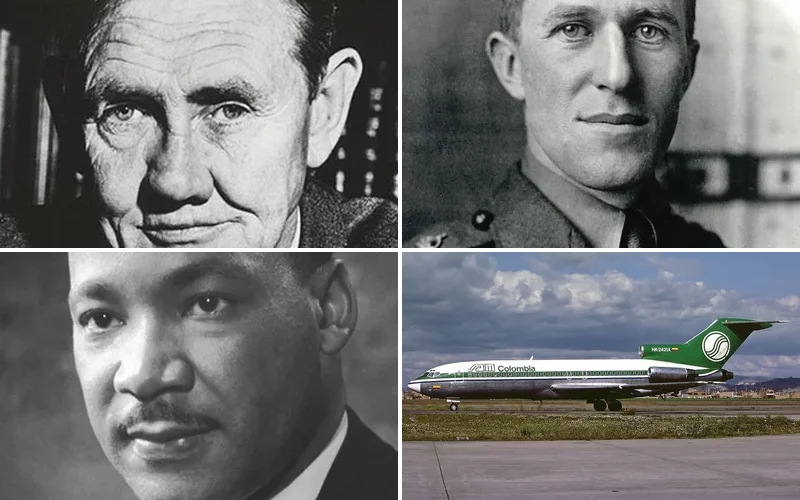
Politics and Government Events on May 19
1919 – Mustafa Kemal Atatürk Lands at Samsun
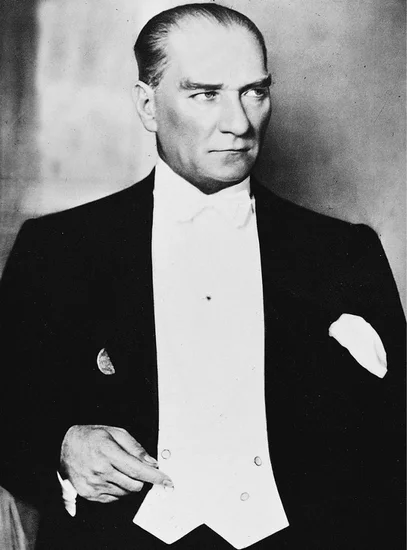
Mustafa Kemal Atatürk arrived at Samsun on the Anatolian Black Sea coast, launching what would become the Turkish War of Independence. This strategic landing marked the beginning of organized resistance against Allied occupation forces.
The future founder of modern Turkey initiated a nationalist movement that would transform the Ottoman Empire’s remnants into a secular republic. His arrival at Samsun became a pivotal moment in Turkish history and regional geopolitics.
1921 – Emergency Quota Act Passed
The United States Congress enacted the Emergency Quota Act, establishing national quotas that drastically limited immigration to America. This legislation marked a fundamental shift in American immigration policy toward restrictive measures.
The act reflected growing nativist sentiment and economic concerns following World War I. It established precedents for immigration restrictions that would influence American demographic patterns for decades.
1934 – Bulgarian Military Coup

The Zveno movement and Bulgarian Army orchestrated a successful coup d’état, installing Kimon Georgiev as the new Prime Minister of Bulgaria. This bloodless takeover represented a significant shift in Bulgarian politics during the interwar period.
The coup brought authoritarian elements to power and aligned Bulgaria more closely with fascist movements across Europe. Georgiev’s installation marked the end of parliamentary democracy in Bulgaria until after World War II.
1991 – Croatian Independence Referendum
Croatians overwhelmingly voted for independence from Yugoslavia in a historic referendum that would reshape the Balkans. The decisive vote demonstrated the Croatian people’s determination to establish their own sovereign state.
This referendum became a catalyst for the Yugoslav Wars and the eventual dissolution of Yugoslavia. The vote represented a crucial step toward Croatian statehood and European integration.
2007 – Romanian President Survives Impeachment
President Traian Băsescu of Romania survived an impeachment referendum and returned to office from suspension. The failed impeachment attempt strengthened his political position and demonstrated public support for his leadership.
The referendum results reflected deep divisions in Romanian politics and society. Băsescu’s survival marked a significant victory for his reform agenda and European integration efforts.
Military and Naval History on May 19
1942 – Task Force 16 Returns to Pearl Harbor
Following the Battle of the Coral Sea, Task Force 16 headed to Pearl Harbor for crucial repairs and resupply. This tactical withdrawal allowed American naval forces to regroup after the intense Pacific engagement.
The return to Pearl Harbor proved strategically vital for preparing American forces for the upcoming Battle of Midway. The lessons learned from Coral Sea would prove invaluable in subsequent Pacific theater operations.
1943 – Churchill Addresses Congress
Winston Churchill delivered his second wartime address to the U.S. Congress, strengthening the Anglo-American alliance during World War II. His powerful oratory reinforced the special relationship between Britain and America.
The speech came at a critical juncture in the war, as Allied forces prepared for major operations in Europe. Churchill’s words helped maintain American commitment to the European theater while building support for future campaigns.
1945 – Levant Crisis Begins
French troops fired upon Syrian demonstrators in Damascus, injuring twelve people and triggering the Levant Crisis. This violent confrontation marked the beginning of the end for French colonial rule in Syria.
The incident escalated tensions between France and the emerging Arab nations seeking independence. International pressure, particularly from Britain and the United States, would eventually force French withdrawal from the region.
1950 – Munitions Explosion in New Jersey
A barge carrying munitions destined for Pakistan exploded in South Amboy, New Jersey, devastating the city and surrounding area. The massive blast demonstrated the dangers of military supply operations during the early Cold War period.
The explosion highlighted security concerns about weapons shipments and port safety procedures. The incident prompted reviews of military logistics and civilian safety protocols in American ports.
Science and Discovery Milestones on May 19
1961 – Venera 1 Flies by Venus
Venera 1 became the first human-made object to fly by another planet, passing Venus despite having lost contact with Earth a month earlier. This groundbreaking achievement marked a milestone in interplanetary exploration.
Although the probe transmitted no data due to communication failure, its successful Venus flyby demonstrated the feasibility of interplanetary missions. The mission paved the way for future Soviet and international planetary exploration programs.
1971 – Mars 2 Launched
The Soviet Union launched Mars 2, advancing humanity’s quest to explore the Red Planet. This ambitious mission represented the continuation of Soviet leadership in planetary exploration during the Space Race.
The probe would later become the first human-made object to reach Mars, though its landing system failed. Despite technical challenges, the mission provided valuable data about interplanetary travel and Mars’ atmospheric conditions.
1996 – Space Shuttle Endeavour Mission STS-77
Space Shuttle Endeavour launched on mission STS-77, carrying out important scientific experiments and satellite deployments. The mission demonstrated continued American capabilities in orbital operations and space-based research.
The successful launch maintained NASA’s ambitious shuttle program schedule during the 1990s. The mission’s scientific objectives contributed to advancing human understanding of space-based manufacturing and Earth observation.
2000 – Atlantis Resupplies International Space Station

Space Shuttle Atlantis launched on mission STS-101 to resupply the International Space Station, supporting the growing international cooperative effort in space. The mission represented crucial logistical support for the station’s early operational phase.
This resupply mission demonstrated the importance of regular shuttle flights for maintaining the ISS. The successful operation highlighted international cooperation in space exploration and the shuttle’s vital role in station operations.
Cultural and Arts Events on May 19
1962 – Marilyn Monroe Sings to JFK

A birthday salute to President John F. Kennedy took place at Madison Square Garden, featuring Marilyn Monroe’s iconic rendition of “Happy Birthday.” This performance became one of the most memorable moments in American entertainment history.
The sultry performance created controversy and speculation about the relationship between Monroe and Kennedy. The event captured the intersection of Hollywood glamour and political power in 1960s America.
1963 – King’s Letter Published

The New York Post Sunday Magazine published Martin Luther King Jr.’s Letter from Birmingham Jail, bringing his powerful words to a national audience. The publication amplified the civil rights leader’s message of nonviolent resistance and social justice.
The letter’s widespread distribution helped galvanize support for the civil rights movement across America. King’s eloquent defense of civil disobedience became a cornerstone document of the struggle for racial equality.
2018 – Royal Wedding Captivates World

The wedding of Prince Harry and Meghan Markle took place at St George’s Chapel, Windsor, with an estimated global audience of 1.9 billion viewers. The ceremony represented a modernization of the British Royal Family and celebration of multicultural Britain.
The wedding broke traditional royal protocols and incorporated diverse cultural elements. The global audience demonstrated the continued fascination with British royalty and the power of modern media to unite worldwide audiences.
Religious and Social Events on May 19
1922 – Young Pioneer Organization Established
The Young Pioneer Organization of the Soviet Union was established, creating a massive youth movement that would shape generations of Soviet children. This organization became a cornerstone of communist ideological education and social control.
The Pioneers taught communist values and prepared young people for adult participation in Soviet society. The organization’s activities combined education, recreation, and political indoctrination across the vast Soviet territory.
1961 – Bengali Language Movement Tragedy
At Silchar Railway Station in Assam, police opened fire on protesters demanding state recognition of Bengali language, killing 11 people. This tragic incident highlighted the complex linguistic tensions in post-independence India.
The deaths sparked widespread protests and eventually led to recognition of Bengali as an official language in Assam. The martyrs became symbols of linguistic rights and cultural preservation in India’s diverse democracy.
1997 – Sierra Gorda Biosphere Established

The Sierra Gorda biosphere, Mexico’s most ecologically diverse region, was established through grassroots conservation efforts. This achievement demonstrated the power of local communities in environmental protection and sustainable development.
The biosphere’s creation represented a victory for environmental activism and indigenous rights. The protected area became a model for community-based conservation efforts throughout Latin America.
Business and Economic Events on May 19
1950 – Suez Canal Closed to Israel
Egypt announced that the Suez Canal would be closed to Israeli ships and commerce, escalating regional tensions and affecting global trade. This decision demonstrated Egypt’s use of economic warfare in the Arab-Israeli conflict.
The closure created significant challenges for Israeli commerce and international shipping. The blockade became a major point of contention that would contribute to future Middle East conflicts and international diplomatic crises.
1986 – Firearm Owners Protection Act Signed
President Ronald Reagan signed the Firearm Owners Protection Act into law, modifying federal gun regulations in the United States. The legislation represented a significant victory for gun rights advocates and the National Rifle Association.
The act relaxed certain restrictions on gun ownership while maintaining some federal oversight. This legislation reflected the ongoing American debate over gun rights and public safety that continues to this day.
2015 – Refugio Oil Spill

The Refugio oil spill deposited 142,800 gallons of crude oil onto California’s biologically diverse coastline, causing significant environmental damage. The disaster highlighted the ongoing risks of oil transportation and coastal vulnerability.
The spill affected one of the West Coast’s most pristine coastal areas, killing wildlife and disrupting local ecosystems. The incident renewed debates about oil pipeline safety and environmental protection regulations.
Transportation and Infrastructure on May 19
1911 – Parks Canada Established
Parks Canada was established as the Dominion Parks Branch under the Department of the Interior, creating the world’s first national park service. This groundbreaking institution set global standards for wilderness conservation and public access.
The creation of Parks Canada reflected growing recognition of the need to preserve natural heritage for future generations. The service became a model for national park systems worldwide and helped establish Canada’s reputation as an environmental leader.
1959 – Ho Chi Minh Trail Planning Begins
The North Vietnamese Army established Group 559 to determine how to maintain supply lines to South Vietnam, resulting in the famous Ho Chi Minh Trail. This logistics network would become crucial to the Vietnam War’s outcome.
The trail development represented innovative military engineering and determination to overcome geographical obstacles. The supply route became one of the most heavily bombed targets in military history, yet remained operational throughout the conflict.
1993 – Aviation Disaster in Colombia

SAM Colombia Flight 501 crashed on approach to José María Córdova International Airport in Medellín, Colombia, killing all 132 people aboard. This tragic accident highlighted safety concerns in Latin American aviation.
The crash prompted investigations into airport safety procedures and aircraft maintenance standards. The disaster became one of Colombia’s deadliest aviation accidents and led to improved safety regulations.
Sports and Recreation on May 19
1917 – Rosenborg BK Founded

The Norwegian football club Rosenborg BK was founded, beginning what would become one of Scandinavia’s most successful football organizations. The club’s establishment marked the growth of organized football in Norway.
Rosenborg would later dominate Norwegian football and achieve success in European competitions. The club’s founding represented the increasing popularity of football across Northern Europe during the early 20th century.
1933 – Mannerheim Appointed Field Marshal
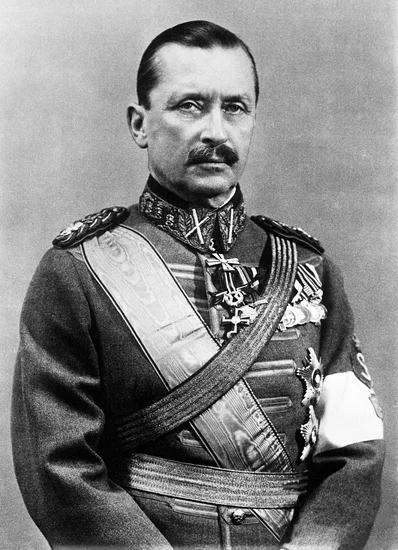
Finnish cavalry general C.G.E. Mannerheim was appointed field marshal, recognizing his military leadership and preparing Finland for future conflicts. This appointment strengthened Finland’s military capabilities during a period of growing European tensions.
Mannerheim’s promotion reflected Finland’s determination to maintain independence between the Soviet Union and Nazi Germany. His leadership would prove crucial during the Winter War and Finland’s survival as an independent nation.
2010 – Thai Military Crackdown Concludes
The Royal Thai Armed Forces concluded its crackdown on protests by forcing the surrender of United Front for Democracy Against Dictatorship leaders. This military action ended weeks of political demonstrations in Bangkok.
The crackdown marked a significant moment in Thailand’s ongoing political instability and military intervention in civilian affairs. The operation demonstrated the military’s continued influence in Thai politics and society.
Notable Births on May 19
1925 – Malcolm X Born
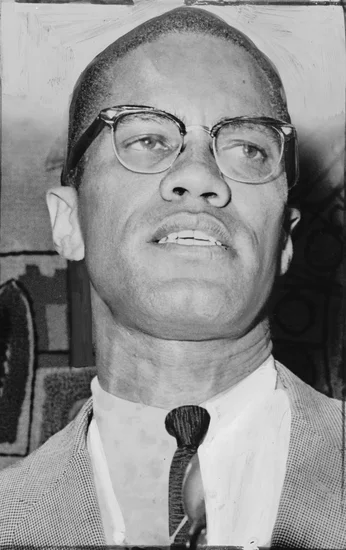
American civil rights leader Malcolm X was born in Omaha, Nebraska, beginning a life that would profoundly impact the struggle for racial equality. His childhood experiences with racism and poverty shaped his later revolutionary worldview.
Malcolm X would become one of America’s most influential civil rights activists and advocates for Black nationalism. His transformation from street hustler to intellectual leader inspired millions worldwide and challenged conventional approaches to racial justice.
1945 – Pete Townshend Born

English musician Pete Townshend was born, destined to become The Who’s primary songwriter and one of rock music’s most innovative guitarists. His early musical interests and artistic vision would revolutionize rock performance.
Townshend pioneered the use of feedback and power chords while creating rock operas that elevated popular music to new artistic heights. His contributions to rock music include some of the genre’s most enduring and influential compositions.
1948 – Grace Jones Born

Jamaican-American singer, actress, and model Grace Jones was born, beginning a career that would challenge conventional notions of beauty and performance. Her unique style and powerful presence revolutionized entertainment and fashion.
Jones became an icon of 1980s pop culture, known for her striking visual presentations and musical versatility. Her influence extended beyond music into fashion, film, and contemporary art, inspiring countless artists across multiple disciplines.
1941 – Nora Ephron Born

American director, producer, and screenwriter Nora Ephron was born in New York City, launching a career that would redefine romantic comedy and women’s voices in Hollywood. Her wit and intelligence shaped modern entertainment.
Ephron created beloved films that combined humor with genuine emotion, while her writing challenged stereotypes about women in relationships. Her contributions to cinema and literature influenced generations of writers and filmmakers.
1950 – Archie Manning Born

American football player Archie Manning was born in Drew, Mississippi, beginning a football dynasty that would span generations. His athletic talents and leadership qualities established him as one of college football’s greatest quarterbacks.
Manning’s professional career and family legacy significantly impacted American football culture. His sons’ subsequent NFL success created one of sports’ most famous families and demonstrated the importance of athletic tradition.
1979 – Andrea Pirlo Born

Italian footballer Andrea Pirlo was born in Flero, Italy, destined to become one of football’s most elegant and intelligent midfielders. His technical skills and tactical awareness would redefine the modern playmaker role.
Pirlo’s career achievements include World Cup victory and multiple Champions League titles, establishing him as one of football’s greatest midfielders. His playing style combined artistry with effectiveness, inspiring a generation of footballers.
1992 – Sam Smith Born

English singer-songwriter Sam Smith was born in London, beginning a musical journey that would earn global recognition and Grammy Awards. Their powerful voice and emotional vulnerability would connect with millions of listeners.
Smith’s debut album achieved massive commercial success while addressing themes of love, identity, and personal struggle. Their openness about gender identity and sexuality has made them an important voice for LGBTQ+ representation in popular music.
Notable Deaths on May 19
1935 – T.E. Lawrence Dies
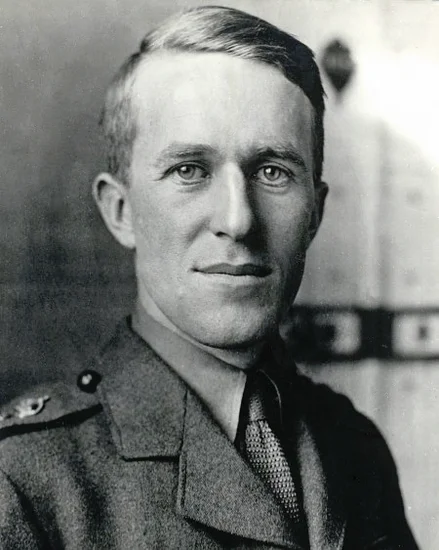
British colonel and archaeologist T.E. Lawrence, known as Lawrence of Arabia, died from injuries sustained in a motorcycle accident. His death ended the life of one of the 20th century’s most romantic and controversial figures.
Lawrence’s role in the Arab Revolt and his literary works made him a legendary figure in British and Middle Eastern history. His death at age 46 cut short a remarkable life that bridged military service, scholarship, and literary achievement.
1994 – Jacqueline Kennedy Onassis Dies
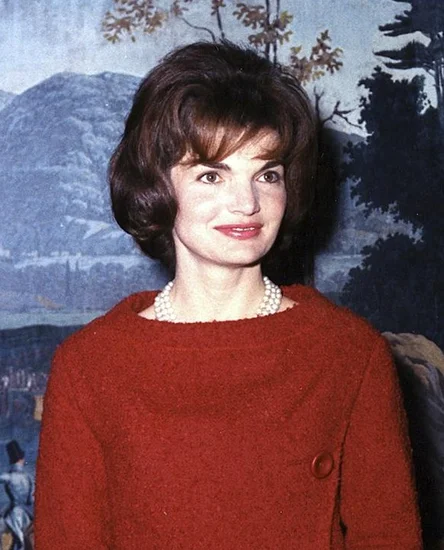
Former First Lady Jacqueline Kennedy Onassis died in New York City, ending a life that epitomized grace, style, and resilience. Her death marked the end of an era in American politics and culture.
As First Lady, she brought unprecedented style and cultural awareness to the White House, while her dignified response to President Kennedy’s assassination made her an enduring symbol of strength. Her later work in historic preservation continued her public service legacy.
1954 – Charles Ives Dies
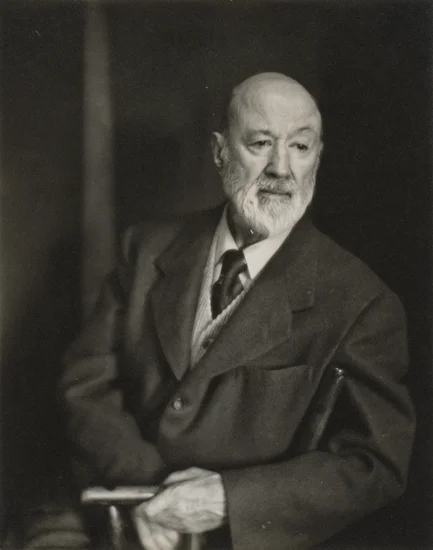
American composer Charles Ives died in New York, leaving behind a revolutionary body of work that challenged conventional musical boundaries. His experimental compositions anticipated many developments in 20th-century music.
Ives combined traditional American musical elements with radical harmonic innovations, creating a uniquely American classical music style. His insurance career allowed him creative freedom, producing works that influenced generations of composers.
1969 – Coleman Hawkins Dies
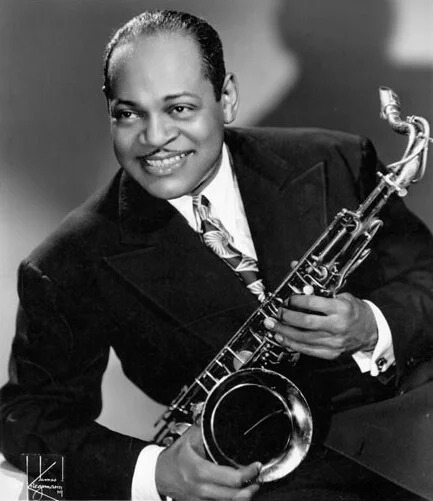
American jazz saxophonist Coleman Hawkins died in New York City, ending a career that helped establish the tenor saxophone as a major jazz instrument. His innovations influenced countless musicians and shaped jazz development.
Hawkins’s recording of “Body and Soul” became a jazz standard, while his improvisation techniques set new standards for instrumental jazz performance. His career spanned the evolution of jazz from swing to bebop and beyond.
2002 – John Gorton Dies
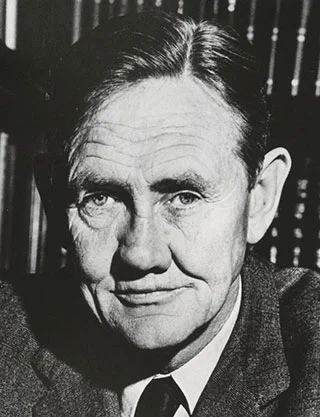
Australian Prime Minister John Gorton died in Sydney, ending a political career that significantly shaped modern Australia. His leadership during the late 1960s and early 1970s marked important transitions in Australian society.
Gorton’s progressive policies on social issues and his support for the arts distinguished his administration. His approach to politics combined pragmatism with idealism, reflecting Australia’s changing identity during a turbulent period.
2011 – Garret FitzGerald Dies
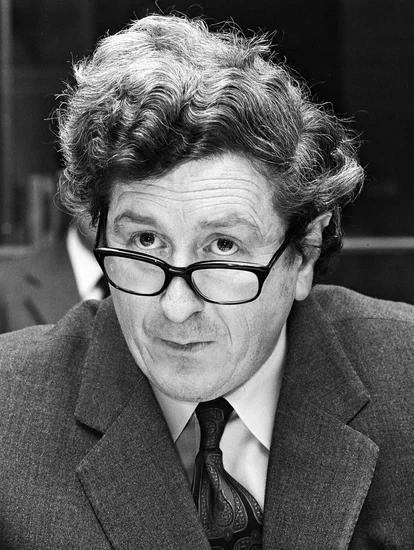
Irish politician Garret FitzGerald died in Dublin, concluding a distinguished career as Taoiseach and statesman. His intellectual approach to politics and commitment to European integration shaped modern Ireland.
FitzGerald’s efforts to improve Anglo-Irish relations and his work on the Anglo-Irish Agreement demonstrated his commitment to peace and reconciliation. His academic background and political pragmatism made him one of Ireland’s most respected leaders.
Holidays and Observances on May 19
Commemoration of Atatürk, Youth and Sports Day

Turkey and Northern Cyprus observe Commemoration of Atatürk, Youth and Sports Day, celebrating the founding father of modern Turkey and the nation’s young people. This holiday combines historical remembrance with contemporary celebration of youth and athletic achievement.
The observance commemorates Atatürk’s arrival in Samsun in 1919, which began the Turkish War of Independence. The day emphasizes the importance of youth in nation-building and the role of sports in developing healthy, productive citizens.
Malcolm X Day

The United States recognizes Malcolm X Day, honoring the influential civil rights leader and advocate for Black nationalism. This observance celebrates his contributions to the struggle for racial equality and human rights.
The day provides an opportunity to reflect on Malcolm X’s evolution from street hustler to intellectual leader and his impact on American civil rights. His message of self-determination and cultural pride continues to inspire social justice movements worldwide.
Pontian Greek Genocide Remembrance Day
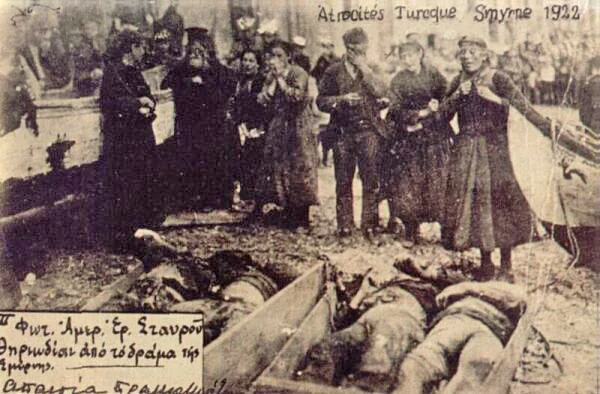
Greece observes Pontian Greek Genocide Remembrance Day, commemorating the systematic persecution and murder of Pontian Greeks by the Ottoman Empire. This solemn observance honors the victims and preserves historical memory.
The day serves as a reminder of the importance of protecting minority rights and preventing genocide. The observance maintains awareness of this historical tragedy and its impact on Greek communities worldwide.
